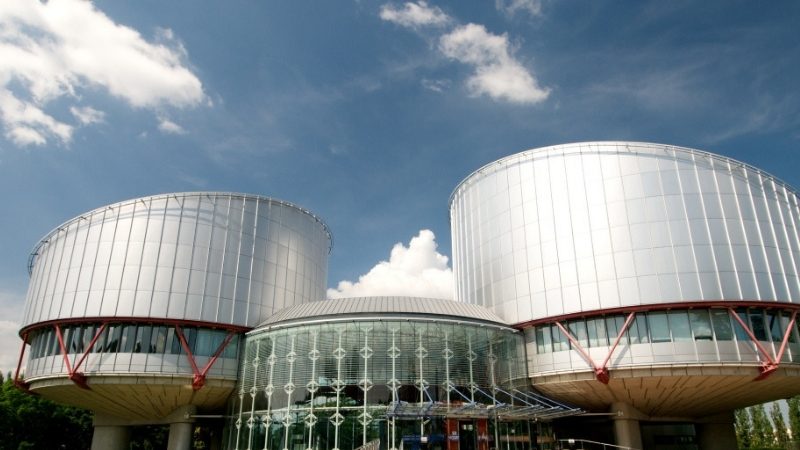The European Court of Human Rights (ECtHR) has ruled that Malta breached human rights law in most of the cases before it over the last 60 years, statistics show.
The ECtHR delivered a total of 101 judgments on Malta, of which 74 found there was at least one violation of human rights.
The ECtHR issued detailed statistics of all judgments it handed down in relation to all the violations by Article and State dating back to when it was established in 1959 up until 2019.
The majority of cases were linked to the right to protection of property, with 30 judgments on issues ranging from expropriation, rent law or requisition orders. In fact, in 2018, one judgment pointed out that Malta should “put an end to the systemic violation of the right of property”.
The second-highest number of judgments (26) were linked to the right of liberty and security.
Monaco had the least number of judgments (3), followed by Andorra (8) and Liechtenstein (9).
Turkey topped the list with 3,645 judgements, followed by Russia with 2,699 and Italy with 2,410. The bulk of judgments in these three countries were found to have at least one violation.
The freedom of liberty of expression
Five judgments related to Malta focused on Article 10 – the freedom of liberty of expression. Libel and defamation judgments fall in this category.
Earlier this month, Judge Giovanni Bonello, former Judge at the European Court of Human Rights, said that none of the Maltese libel judgments taken up to the European Court was “confirmed or found justifiable”.
Describing it as a “human rights massacre”, Bonello said, “those judgments were no doubt deemed good enough for Malta, but they were worse than garbage on the world stage. The ECtHR did not have a skip large enough to contain them”.
The judgments that fall under Article 10 for Malta are:
1. Unifaun Theatre vs Malta
The theatre company turned to the ECtHR after the now inexistent Maltese Film and Stage Classification Board and the Maltese courts had banned its production, Stitching, because the script included swearing. Eight years later, in 2018, the ECtHR unanimously decided in favour of the theatre company, saying there had been a violation of their freedom of expression, allowing them to go ahead with the show.
2. Falzon vs Malta
This libel case involved two Maltese members of Parliament, both Michael Falzon, but from opposing sides of the House. Former PN Minister Michael Falzon lost a libel case when Maltese courts found that an opinion article he wrote about his namesake Labour MP Michael Falzon was defamatory. In the article, Falzon had pointed out that there were people who could influence and interfere in decisions taken by the police force after his Labour MP had received an anonymous email together with threatening letters. The ECtHR said his opinion piece was legitimate criticism.
3. John Anthony Mizzi vs Malta
This case involved a letter to the editor, an 86-year-old man, a yacht marina project and a defunct prime minister. In 1994, The Sunday Times of Malta published a letter by 86-year-old Mizzi who said the residents of St Paul’s Bay had not been consulted on a proposal to build a yacht marina in the area. He also commented that former prime minister Sir Paul Boffa had given permission to build in the bay because “Dr Boffa wanted to build there”. Boffa’s heirs took the case to court as they felt this was defamatory but the European Court said this breached Mizzi’s right to expression because the detail about Boffa was mentioned in passing and the subject of the piece had died more than 30 years before the article was published.
4. Aquilina & Others vs Malta
This case dates back to 1995 when a court reporter for The Times of Malta wrote a story that a lawyer was found guilty of contempt of court for failing to turn up for a sitting. The lawyer demanded an apology, saying it was not the case. Since nothing could be verified in the minutes of the sitting, The Times of Malta had issued an apology. Yet, the lawyer still sued for defamation and won. The case was eventually taken to the ECtHR, which found there was a violation of Article 10 as the reporter had acted in good faith and in line with her duty of responsible reporting.
5. Lombardo & Others vs Malta
A dispute over roadworks in Fgura and a letter to the editor ended up in the ECtHR after three Nationalist Fgura councillors in 2001 published the article in the Party-owned Nationalist paper saying the local council was ignoring public opinion on the matter. The local council sued, accusing the three councillors and the newspaper’s editor of defamation. These were found guilty. However, the European Court eventually overturned the Maltese courts’ decision.
The ECtHR abstained from taking a decision on the case Calleja v Malta because both parties had reached a settlement.












